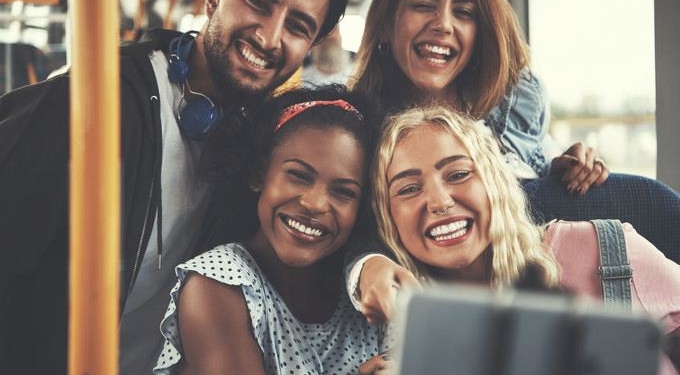
By Howard J. Ross
Human history provides ample evidence that we, as a species, have an engrained predisposition to create conflict over perceived differences. Our implicit need to categorize others into groups that represent “us” and “them” is fundamental to our nature. But this proclivity towards tribalism gives rise to segregation, repression and, in many instances, genocide. When we identify a group different from ourselves as less than human, it’s not difficult to inflict harm upon its members.
Tribalism, however, isn’t consigned to the annals of history. For all its developments, human civilization hasn’t evolved into a more peaceful and compassionate whole. Instead, a surge of xenophobic, anti-immigration, authoritarian political figures across the globe — from Donald Trump in the U.S. to Boris Johnson in the U.K, to Jair Bolsonaro in Brazil to Narendra Modi in India, just to name a few — indicates that the forces of bigotry and hate are alive and well. And these forces weigh heavily on the lives of millions of people in all corners of the world whom the dominant races in their countries deem “other.”
Despite well-known figures in the last century who successfully challenged repression, including Dr. Martin Luther King’s fight for civil rights in the U.S., Mahatma Gandhi’s challenge to British colonialism in India, and Nelson Mandela’s stand against apartheid in South Africa, civil society is sliding back into a dangerous period of increased divisiveness. Individually and collectively we need to stop this regression and intensify efforts to create understanding and inclusion.
In order for humans to rise above our differences, we need to find ways to promote greater harmony. We can start by focusing on these practices:
1. Understand our personal biases. If we’re going to make conscious choices to create a more inclusive society, we have to develop a deeper understanding of our own biases. Becoming aware of our individual biases is the first step in helping to manage them. That requires avoiding knee-jerk reactions and considering that there may be other points of view or information about which we’re not aware of.
2. Take in other points of view. We’re deeply influenced by the informational echo chambers we live in, but it’s important to take the time to really understand where others are coming from on the other side of an issue. Rather than focusing only on what people on the other side believe, focus on why they believe it — and apply the same inquiry to ourselves. Are we being true to our own beliefs, or are we just stuck in the desire to be right? If we can get to know others’ points of view, from their framework, we may uncover ways of finding common ground that we can’t see when we’re only committed to being right.
3. Strive to disagree without being disagreeable. There’s no denying that this can be difficult, particularly in light of our current cultural dissonance. In diverse groups, agree on a set of ground rules. For example, decide: “We’re not here to persuade, defend or interrupt. We’re here to be curious, to be authentic and to listen.” The more we can keep a civil tone in our conversations, the better chance we have of understanding each other and finding common ground.
4. Discover different perspectives. We can consciously open ourselves to exploring new perspectives that embrace different points of view. We all have the ability to look beyond our own understanding and discover other ways of experiencing the world. It’s so important to keep an open mind, to reevaluate our current realities and to not let our politics and opinions define how we regard other people. Instead of looking for ways to justify our beliefs, look for ways to learn.
5. Be willing to admit wrong and to forgive. Moving past our sense of self-righteousness and cultivating a willingness to admit when we’re wrong will help overcome a major barrier to inclusiveness in today’s fractious climate. People have become so obsessed with being right that they refuse to consider admitting when they’ve made a mistake. When we slip up and become overly aggressive, make an insensitive generalization, assign blame erroneously or some other blunder, we need to apologize. Also, we must be willing to forgive. As Nelson Mandela said, “Courageous people do not fear to forgive for the sake of peace.”
Keep in mind that we’re all global citizens and have a shared destiny on our human journeys. Individually and collectively, we can create a better world by honoring each other for the perspectives we bring rather than perpetuating divisiveness and hate.
About the Author
Howard J. Ross is a lifelong social justice advocate and a principal in Udarta Consulting. He was previously the founding partner of Cook Ross, Inc. Ross is considered one of the world’s seminal thought leaders on identifying and addressing unconscious bias. He has authored several books, including Our Search for Belonging: How the Need for Connection Is Tearing Our Culture Apart, and ReInventing Diversity: Transforming Organizational Community to Strengthen People, Purpose, and Performance. The revised edition of his bestselling book, Everyday Bias: Identifying and Navigating Unconscious Judgments in Our Daily Lives (Rowman & Littlefield, April 2020), describes how to bridge the divide in our increasingly polarized society. Learn more at howardjross.com.
















